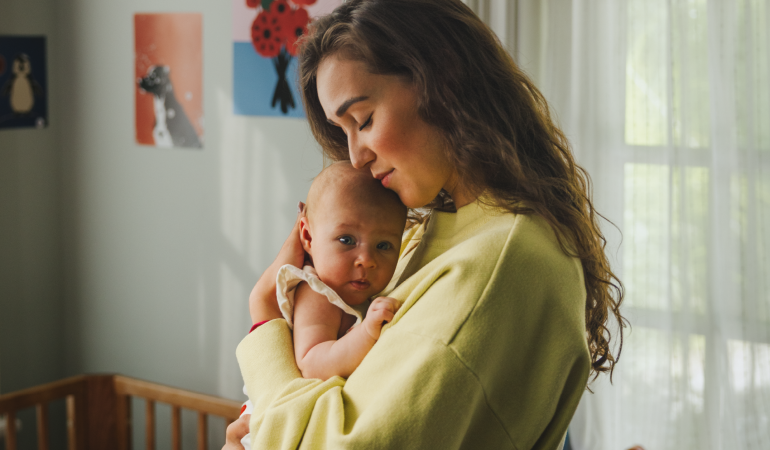
Starting in September 2025, babies can get an injection against RSV. The respiratory syncytial virus (RSV) can cause serious respiratory infections, especially in young babies. Between 1,500 and 3,000 babies end up in hospital every year as a result of RSV. The injection protects babies against severe illness resulting from the virus during their first year of life.
The injection against RSV is part of the National Immunisation Programme and is given to babies born on or after 1 April 2025.
RSV
RSV causes respiratory infections, such as nasal colds. RSV infections are mainly seen in autumn and winter. The virus can be dangerous, especially for young babies. They could develop shortness of breath or pneumonia.
How the injection works
The injection against RSV is not a vaccination, but an immunisation. The injection contains antibodies against the virus. That means the baby does not have to produce its own antibodies against RSV, which would happen in response to a vaccination. The RSV antibody injection offers almost immediate protection, lasting about 6 months.
The injection works well and almost never has side effects. Very occasionally, babies may get a rash or a fever, or the injection site may be red or puffy for a bit.
The injection is already being given in other European countries. RSV-related hospital admissions have decreased by 80%.
Seasonal injection
RSV is mainly seen in autumn and winter. Babies receive the injection just before or during the time of year when RSV is most common. The timing of the injection depends on when the baby is born:
- Babies born from 1 October through 31 March will receive the vaccination within 2 weeks after being born.
- Babies born from 1 April through 30 September will receive the vaccination in September or October.
Parents will receive information from the obstetric care provider, at the well-baby clinic, or from RIVM. The well-baby clinic will arrange the appointment for the injection against RSV.